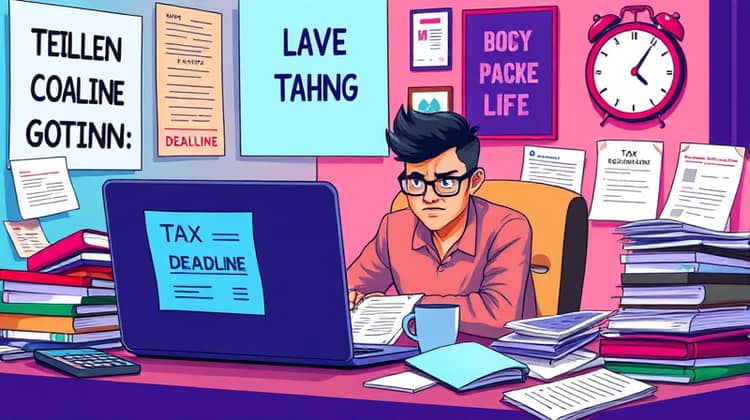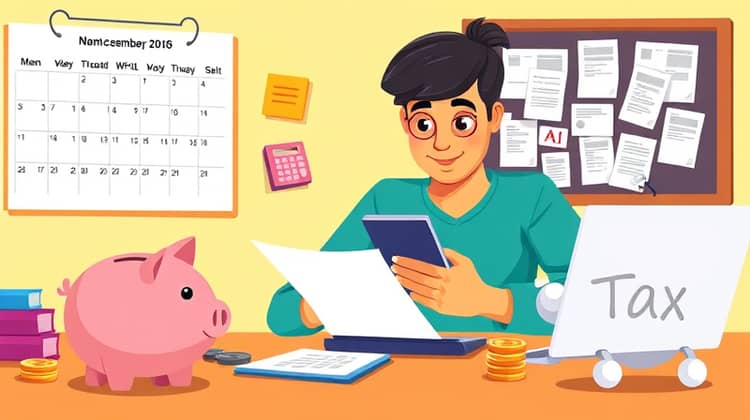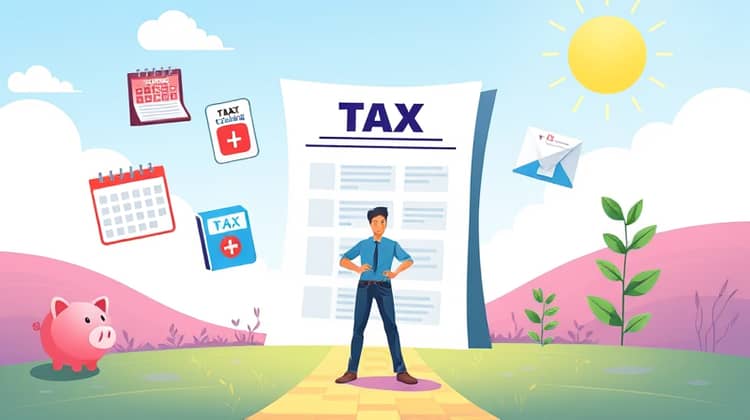Tax season can be a stressful time for many individuals, especially those who find themselves unable to pay their tax bills. It's essential to understand that this situation is not uncommon, and there are steps you can take to navigate through it. Instead of feeling overwhelmed, take a deep breath and focus on the solutions available to you. Here’s a guide to help you manage your tax obligations, even when funds are tight.
First and foremost, keep in mind that the consequences of ignoring your tax responsibilities can be severe, including penalties and interest charges. Therefore, it's critical to take action instead of burying your head in the sand. By addressing the issue head-on, you can alleviate some of the stress you're feeling and find a way to get through this difficult time.
In this blog post, we will outline several important steps you can follow if you're unable to pay your taxes, including filing your return, knowing your payment options, and seeking professional help. Remember, the key to overcoming this challenge is to stay informed and proactive.
1. Don’t Panic

The first and most important piece of advice is to avoid panicking. Panic can lead to poor decision-making and might cause you to ignore the situation altogether. Remember, you're not alone in this—many people face similar challenges during tax season. The IRS has systems in place to help those in financial hardship, so take heart and approach the issue calmly.
Take a moment to assess your financial situation. Understanding your income, expenses, and any available funds can guide you in determining your next steps. Don't make any hasty decisions; instead, give yourself time to process the situation and consider your options.
Emotions can run high, especially if you feel overwhelmed by your financial obligations. However, adopting a level-headed approach will help you to manage your tax situation more effectively. Create a plan, and take it one step at a time.
2. File Your Return, Even if You Can’t Pay

It’s crucial to file your tax return by the deadline, even if you're unable to pay the amount you owe. Failing to file can lead to harsher penalties compared to simply filing and then dealing with a payment issue. The IRS may charge a failure-to-file penalty, which can increase the total amount you owe significantly.
By filing, you demonstrate to the IRS that you are taking your tax responsibilities seriously. They may be more willing to work with you on payment options if they see that you’ve filed your return on time. If you're struggling to gather all your documentation, consider filing for an extension, but make sure you complete and submit your return as soon as possible.
Remember, filing your return is a legal obligation. If you don’t file, you risk additional penalties that could exacerbate your financial woes. So, make it a priority to submit your return—even if it's just to show the IRS that you are making an effort.
3. Know Your Payment Options

Once you’ve filed your return, it’s essential to understand your various payment options. The IRS offers several programs for individuals who can't pay their full tax bill at once. You can arrange to pay in installments, which allows you to break down your payments into more manageable amounts over time.
This approach can help you avoid hefty penalties and interest charges that might accrue if you don’t pay at all. Being proactive about communication with the IRS is key in these situations, as they often provide options to taxpayers who reach out and explain their circumstances.
- Installment Agreement: Set up a monthly payment plan to pay off your tax debt over time.
- Offer in Compromise: Negotiate a settlement for less than the full amount owed if you qualify.
- Currently Not Collectible Status: If you're facing financial hardship, the IRS may temporarily halt collection efforts.
Taking advantage of these options can alleviate the burden of approaching your tax bill. Be sure to review and select the option that aligns with your current financial capabilities. Remember to keep track of your payments to avoid falling behind again.
4. Consider a Tax Extension

If you're feeling overwhelmed about your tax situation, consider filing for an extension. An extension gives you additional time to prepare your return, which can be beneficial if you're facing financial difficulties. However, keep in mind that an extension to file does not grant an extension to pay, so any taxes owed will still be due on the original deadline.
An extension could provide you some much-needed time to gather your documents, consult with a tax professional, or simply give you more breathing room to think through your options. It demonstrates to the IRS that you are taking reasonable steps to fulfill your obligations.
To file for an extension, you can submit Form 4868 to the IRS, either electronically or via mail. This action can help you avoid the stress of rushing through your paperwork as the deadline approaches.
If the IRS grants you an extension, it’s critical to resolve your financial situation efficiently. Use the breathing room to formulate a plan for that outstanding tax balance, and don’t forget to mark your calendar for the extended due date.
5. Avoid Future Tax Debt

Dealing with a tax debt is challenging, but taking steps to prevent it in the future can save you significant stress. One of the easiest ways to avoid future tax debt is to adjust your withholdings to ensure that you are paying enough throughout the year. This can help to mitigate any tax bill when you file your return next year.
Additionally, start a tax savings fund to save for your tax bill. A dedicated account can help remind you to allocate funds specifically for taxes, allowing you to cover your tax obligation without the added pressure.
- Review your financial situation regularly and adjust your budget accordingly.
- Consult with a tax advisor annually to ensure you are on track with your taxes.
- Stay organized and keep thorough records of your financial documents to streamline the tax preparation process.
Having a solid tax plan in place can lead to a more comfortable experience during tax season, and you can avoid the panic that comes with unexpected tax bills. Being proactive is essential to a healthy financial future.
6. Seek Professional Help

When in doubt, consider reaching out to a tax professional. Tax professionals, such as certified public accountants (CPAs) or enrolled agents, can provide valuable guidance tailored to your specific situation. They can help navigate the complexities of tax law and assist in negotiating with the IRS if necessary.
A tax professional can also help you organize your finances and ensure your tax returns are accurate and complete, potentially saving you money and stress in the long run. They can offer insights on deductions and credits you might not be aware of that could reduce your taxable income as well.
Investing in professional assistance when dealing with tax debts or complications often brings peace of mind and could lead to better financial outcomes.
Conclusion

Facing tax debt can be intimidating, but remember that you have options and resources available to help you through this challenging time. The most important message here is not to ignore the problem; addressing it head-on will ultimately put you in a better position to resolve it.
Whether it’s filing on time, seeking an extension, or consulting with a tax professional, taking actionable steps is crucial to alleviating the burden of unpaid taxes. Familiarize yourself with your payment options and don't hesitate to reach out for help if needed.
Long-term financial wellness involves proactive tax planning and management. You may wish to take on practices that can prevent future tax debts, such as adjusting withholdings or setting aside savings specifically for tax obligations.
In summary, while owing taxes can feel overwhelming, keeping a level head and knowing what steps to take can help you mitigate the stress and avoid severe financial repercussions. Take charge of your situation today to ensure a brighter financial future.














